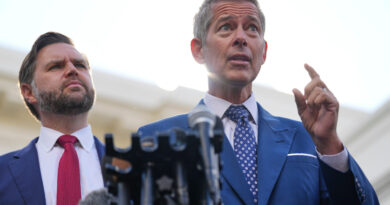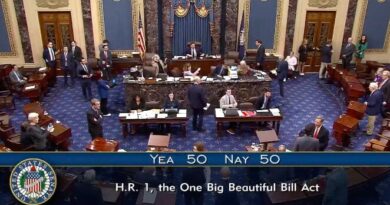Lawmakers push Rev. James Lawson for posthumous Congressional Gold Medal award
Following the recent death of civil rights leader Rev. James Lawson, lawmakers hope to finally achieve a years-long effort to award him a Congressional Gold Medal.
“There’s not enough knowledge about how profound a role James Lawson played in the civil rights movement in this country,” U.S. Rep. Ro Khanna, D-Calif., told theGrio in an exclusive about re-introducing a bill to honor Lawson with one of the United States’ oldest and highest civilian awards.
Khanna, who developed a personal relationship with Lawson over several years, called the activist and theoretician a “civil rights hero” and argued that “his story needs to be better celebrated and told.”
The progressive congressman, along with nearly two dozen co-sponsors, reintroduced legislation that would award Lawson, who died on June 9 at 95, with the Congressional Gold Medal for his “contributions to the advancement of civil rights through nonviolent methods in the United States.”
Khanna described Lawson as the architect of the civil rights movement of the 1960s, which was steered by civil rights leaders like Rev. Martin Luther King Jr. and former U.S. Rep. John Lewis.
Khanna pointed out that many Americans may not know that Lawson imparted the teachings of Mahatma Gandhi to Black civil rights activists. This became an effective strategy that galvanized America’s consciousness and eventually led to groundbreaking legislation that advanced Black freedoms, like the Civil Rights Act of 1964 and the Voting Rights Act of 1965.
“Lawson went to India and learned about nonviolence and Satyagraha, and he really helped impart that teaching to King and John Lewis and others,” Khanna said. “He’s one of the key reasons that tied the Indian independence movement with the civil rights movement.”
Khanna came to know Lawson personally after they were connected because of Khanna’s grandfather, Amaranth Vidyalankar, who was imprisoned alongside Gandhi during the Indian independence movement. His grandfather’s activism inspired the future congressman to a career committed to advancing human rights. Even as the U.S. became more polarized during the political rise of former President Donald Trump, Khanna recalled Lawson encouraged listening to the American voters who supported Trump to “understand where they’re coming from in terms of their fears and anxieties and finding our common humanity as Americans.“
I would call (Lawson) sometimes when I was very concerned about the direction of the country, upset about the vitriol on the other side, and he always calmed me down and talked about healing and reconciliation and transcending division,” Khanna said. “He had such a wonderful perspective and hopeful perspective about America.”
Khanna has introduced legislation to award Lawson every year since 2018 without success. He said it would pass in both chambers “if my colleagues just got to see what he stood for and know what he helped to achieve.” Lawson’s death might make a difference. “I’m hoping that now that he’s passed, there will be more clarity into the magnitude of his achievements.”
U.S. Rep. Emanuel Cleaver, D-Mo., a mentee of Lawson and a co-sponsor of the bill, told theGrio in a statement that he was “humbled” to join fellow members of Congress in the “important effort” to honor the civil rights leader’s “life, legacy, and colossal impact.
“Reverend Lawson’s teachings and inexorable commitment to nonviolence techniques proved pivotal in the fight for civil rights, shining a light on the horrors of Jim Crow and providing a path to salvation for millions to follow,” Cleaver said. He continued, “There are few Americans in history who have done more to ensure the nation lives up to its founding promise of equality and freedom for all, and the Congressional Gold Medal is an appropriate recognition from a grateful nation for his lifetime of service.”

As an Indian American, Khanna acknowledged the deep connection between the Indian American and Black American communities, formed by leaders like Lawson, who made his American success story a reality.
“There would be probably no King if there were no Gandhi, but there would be no Indian American community if there were no King. Indian American immigration happened post ’65,” said Khanna, who noted that the Immigration Reform Act, which made it possible for Indian immigrants to come to the United States, resulted from the civil rights activism of Lawson, King and others.
“The Indian American community owes a huge debt to the civil rights movement,” said Khanna, including the fact that many Indian Americans served as faculty at Historically Black Colleges and Universities (HBCUs) because “the Harvards and Stanfords” wouldn’t hire them.
He added, “In fact, Nikki Haley‘s father was at one of them.”
Given that shared connection, the congressman said he envisions a future where Indian American and Black communities “come together around new economic opportunity, new wealth generation, technology.”
On Sept. 30, Khanna will convene 40 HBCUs and tech leaders from companies like Apple, Google, and Microsoft to “create economic opportunity and jobs” for HBCU graduates, including funding their businesses and creating scholarships.
“A lot of the Indian American community has had success in tech,” he acknowledged. “We need to recognize the connection between the communities … this coalition can be very powerful in American politics.”





